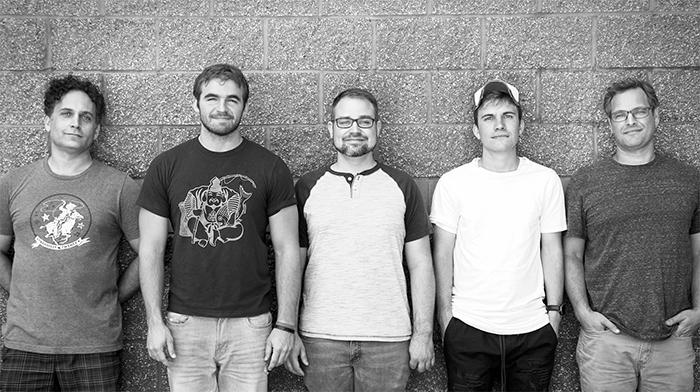
St. Louis-based Hoperator, a live chat and social messaging platform which increases lead conversions and guest loyalty for independently owned travel and hospitality businesses, made its public launch last month.
Co-founder Michael Foltz previously lived in Krakow, Poland where he owned and managed hostels including Stranger Hostel, a Lonely Planet Blue List Recipient as one of the top 10 hippest hostels in the world.
Foltz has a background in web development and also built a property management software system for hostels which he licensed out and built a client base. Hoperator’s other co-founder Chris Douglas’s background is in digital marketing and UX design.
Together, the two officially started Hoperator in December of 2015 when it earned $250,000 in Angel Investments to build the prototype. It went into beta in October of 2016 with a handful of hostels located in Venice, Italy. Earlier this year, the company acquired $1M in Series A funding from St. Louis-based, AI software company, Veteran Technology Group, and Hoperator found roots in St. Louis.
The city is not only where Douglas grew up, but it’s also where the co-founders felt they could join a community and build resources in America. They were also able to advantage of St. Louis’s ITEN, completing several of its programs.
“That was really a benefit,” said Foltz. “They have since opened up doors for everything from local investors to potential advisers.”
“It is a tighter knit community and I feel like just from our experience and other entrepreneurs, people in the ecosystem genuinely want to help each other,” said Douglas. “I think there’s a good bit of camaraderie that happens in this area and the Midwest in general.”
Hoperator is known internationally, but now it’s time to focus their resources back on St. Louis and America and get to work after their launch.
“That’s kind of the ironic part of the whole thing. […] All of our resources happen to be in Italy,” said Douglas. “We just launched out of beta publicly a few weeks ago and are starting to work with companies here in the U.S. as well as expanding our international partnerships.”
Hoperator works by embedding a live chat component onto a hotel’s website. Their core customers are independently-owned boutique hotels and hotel groups that own or manage other hotels.
“We launched initially focusing on the independent traveler market like hostels, small hotels and budget accommodations, and we started to get some interest on the hotel side of things pretty quickly,” said Douglas. “We decided we needed to move in that direction so we landed a partnership with a hotel technology provider in Europe that services a few hundred boutique hotels [and we integrated] with their software.”
The co-founders think that online travel booking technology is relatively old and hasn’t experienced much innovation in recent years.
“The features and functionality really resonate with the hotels and the potential guests that engage with it,” said Douglas. “Once people book and they stay at the hotel, we keep them connected to the hotel staff via messaging.”
While millennials are pushing the number of international trips to an all time high, the booking and planning processes are still very disconnected, resulting in one of the highest abandonment rates of all e-commerce experiences at 81.6%.
“That was one thing Michael and I really focused on when we created Hoperator. We looked at things that were working to increase conversions,” said Douglas. “With the rise of real-time, on-demand connectivity, we looked at live chat and […] noticed that in the traditional e-commerce experience, just implementing live chat at the point-of-sale can increase conversions by up to 30%.”
Foltz said another challenge with travelers is that everyone has different interests that aren’t adequately covered by guidebooks or online travel resources.
“Inevitably, guests talk to the receptionists and get personalized recommendations based on the interests they share,” said Foltz. “Staff members, with their ability to share their local expertise and connect personally with travelers, are arguably any travel business’s most valuable asset.”
Hoperator just launched but they’re already working on future plans.
Aside from partnership integrations and more robust analytics, we’re working on developing our AI, we’re adding integrations with Facebook Messenger, skype, SMS, email, etc. so that businesses can use Hoperator to manage all of their communication channels,” said Douglas. “We’re also working with a partner to allow a business to chat with visitors on an OTA’s website.”
__
Christine McGuigan is the Managing Editor of Silicon Prairie News.




